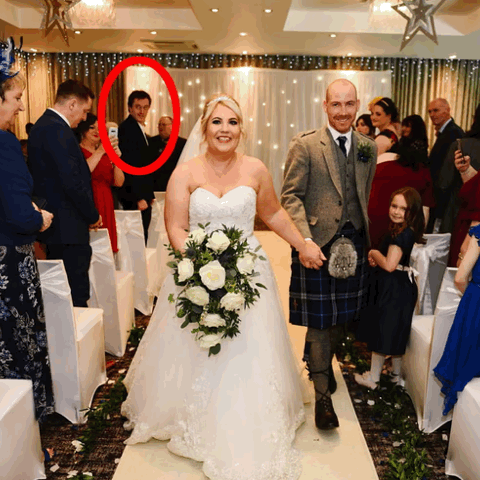- The Knowledge
- Posts
- We ignore these angry protests at our peril
We ignore these angry protests at our peril
🎬 $1 movies | 🔠 Common phrases | 💍 Wedding crasher
In the headlines
Labour backbenchers and trade union leaders have given Keir Starmer until the local elections in May to turn around his premiership, says the FT. The prime minister is still under pressure over how much he knew about Peter Mandelson’s links with Jeffrey Epstein when he appointed him Britain’s ambassador to the US, and No 10 is increasingly concerned about a potential leadership challenge by the Greater Manchester mayor, Andy Burnham. Starmer has said Britain will “never surrender” the flag to those using it as a symbol of violence, fear and division, after as many as 150,000 people joined a far-right protest in London on Saturday. At least 26 police officers were injured at the “Unite the Kingdom” rally, which was organised by right-wing activist Tommy Robinson. Owen Cooper became the youngest-ever male winner at last night’s Emmy Awards, scooping the best supporting actor gong for his role in the Netflix series Adolescence. The four-part show took home eight awards, including best actor for Stephen Graham and best supporting actress for Erin Doherty.

Getty
Comment

Unite the Kingdom protesters clashing with police on Whitehall. Andy Barton/SOPA Images/LightRocket/Getty
We ignore these angry protests at our peril
Tommy Robinson’s Unite the Kingdom march on Saturday was initially like a “nationalist street party”, says George Monaghan in The New Statesman. The sun was out. Joints were passed around. Attendees found innovative ways to make songs like Seven Nation Army and We Are the Champions fit to the words “Keir Starmer’s a wanker”. “Look dad!” one boy called out excitedly. “They’ve got a balloon dick with Starmer’s face stuck on!” Eventually, perhaps inevitably, the right-wing march descended into violence. Beer cans were thrown at counter-protesters. A bottle smashed against a police horse’s face. Men climbed scaffolding, asking if anyone had “any fucking packet”, meaning cocaine. “Fucking Jews!” shouted one chap near me during a surge at the police. “Heil fucking Hitler!”
There was obviously “some hooliganism at the margins”, says Trevor Phillips in The Times. Elon Musk, beamed in by satellite, called for the overthrow of the government. But most of the attendees weren’t angry rabble-rousers or even political activists. They were ordinary folk: the guys “you meet in a country pub with their dogs, or in a queue for drinks at half-time”. And the fact that 150,000 or so of these people were willing to brave the first cold weekend of the autumn – “at the behest of a serial convict and self-confessed fraudster” – suggests that “something is very rotten in the state of Britain”. What has happened is that the angry protests outside asylum hotels are “metastasising” into a simpler message: stop immigration, defend free speech, revive Christianity. For a country that feels increasingly angry and unmoored, that’s a “compelling trinity”. And it’s a movement our mainstream politicians ignore at their peril.
Advertisement
It’s easy to forget how fast the dark evenings draw in. Soon, we’re all back to straining at the page, squinting under harsh artificial light until the words start to blur.
Serious Lights are engineered to restore the full, natural daylight your eyes need. Words sharpen, colours become true, and eye strain disappears.
As we clear our factory for new models, selected 2024 lights are now at half-price. This price will not be repeated and will end on 30th September. Quote 9975 at checkout.
Film
Stephen King has an unusual policy with screen adaptations of his work, says Richard Osman on The Rest is Entertainment: he allows any student filmmaker to make short films of his short stories for the princely sum of $1. One aspiring director who took him up was Frank Darabont, who in 1983 adapted King’s The Woman in the Room with some fellow New York University film students. Around 10 years later, Darabont asked King if he could adapt another of his short stories into a full-length movie. King demurred, saying the work in question was “unfilmable”, but agreed to sell the rights for a meagre $5,000. The result? The Shawshank Redemption, “one of the most beloved movies of all time”.
Noted
Spare a thought for the Jezebel website, says Helen Lewis on Substack, which published a piece two days before Charlie Kirk was killed with the headline: “We Paid Some Etsy Witches to Curse Charlie Kirk.” After the activist’s assassination, an editor’s note was hastily added emphasising that the site condemns his killing “in the strongest possible terms”.
Games

In Common Phrases, players are given a starter word followed by a chain of six words with only the first letters showing. Each one forms a common phrase with the next – “pencil” might be followed by “case”, which might come before “closed”, and so on. You get three hints that reveal the next letter, and three lives for guessing the wrong word. Give it a go here.
Comment

Tributes to Charlie Kirk. Phill Magakoe/AFP/Getty
The “partisan blindness” tearing America apart
Conservatives didn’t waste time settling on a narrative after the tragic killing of Charlie Kirk last week, says David French in The New York Times: it was the left’s fault. Matt Walsh, a popular podcaster, put it bluntly: “Charlie tried to have conversations with you on the left, and you killed him for it.” Blake Masters, an ally of JD Vance, wrote: “There is no ‘both sides’ here. The political aggression and taste for violence against innocent people are all coming from the left.” But is that really fair? In the past decade we’ve seen right-wing extremists commit mass murder in synagogues and shopping centres; hard-right militants plot to kidnap the governor of Michigan; a Democratic Minnesota lawmaker and her husband assassinated in their own home. And what was January 6, if not an act of mass political violence?
The problem is “partisan blindness”. When people see someone on the opposing side doing something wrong, they see it as “emblematic” of a wider issue: “That’s just what the left does”. Whereas when someone from their own political tribe acts badly, they dismiss it as an exception: “Every orchard has a few bad apples” and “How dare you compare me to that terrible person?” Both sides do this. And the result is that you always end up “mad at the opposition”. Either they’re guilty by association, or they’re accusing you of being guilty by association for what is, in your mind, “obviously an evil individual act”. All this is magnified by online algorithms: they know you’ll lap up content that either amplifies bad acts by your political enemies or attacks your friends. So everyone ends up in a “carefully curated false reality”. Last week we saw the consequences.
Letters

Roger Moore and Barbara Bach in The Spy Who Loved Me (1977)
To The Economist:
“On His Majesty’s Stretched Service” (30 August) noted that one of the tasks facing MI6 is “catching spies working for foreign services, ideally by penetrating them”. It appears that James Bond’s methods are still relevant after all.
Mark Schofield
London
Quirk of history

Monty Python (1972)
If you’ve ever wondered why junk email is called spam, says Charlotte Alt in The Times, it’s because of Monty Python. Early computer engineers were big fans of the show, in particular the sketch in which a cafe waitress tells a customer what’s on the menu: “egg and spam; egg, bacon and spam; egg, bacon, sausage and spam; spam, bacon, sausage and spam; spam, egg, spam, spam, bacon and spam”. Something about the relentless repetition clearly struck a chord, and the techies rebranded “UCE” (Unsolicited Commercial Email) as “spam”.
Snapshot

Snapshot answer
It’s Andrew Hillhouse, whose identity has finally been revealed after he accidentally crashed a wedding in Ayrshire four years ago, says Jonathan Geddes on BBC News. Michelle and John Wylie quizzed all their guests after spotting a mystery man – “a noticeable look of puzzlement on his face” – in the photos of their big day. But no one knew who he was. Hillhouse, it turns out, had rocked up after being sent the wrong address for a different ceremony, and only realised his error when the bride started walking down the aisle. “The second I see her,” he said, “I’m like ‘oh no, that’s not Michaela, what’s going on here?’”
Quoted
“Never tell people how to do things. Tell them what to do and they will surprise you with their ingenuity.”
US general George Patton
That’s it. You’re done.
Let us know what you thought of today’s issue by replying to this email
To find out about advertising and partnerships, click here
Been forwarded this newsletter? Try it for free
Enjoying The Knowledge? Click to share



Reply